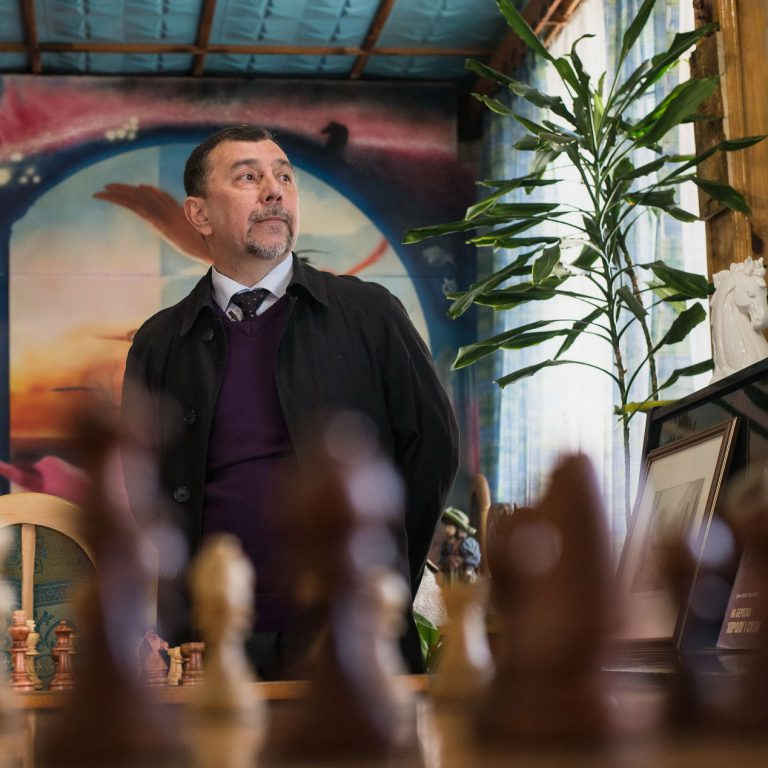In a town of Kostopil in Polissia, Oleksandr Kozak founded a chess club which grew to become a center of intellectual development. Oleksandr turned an empty abandoned building inhabited by rats into a place where local people regularly go to play chess, read, and discuss interesting topics with the teacher and with each other.
Oleksandr says that the secret to success is to love – love children as personalities and love what you do. We often look for a place where we could feel comfortable and develop, a place, which would feel like home. Oleksandr Kozak did not just find such a place, he created one from scratch.
Ukraine has a long history of chess culture. Archaeological excavations in Vyshhorod, Kyiv, Turiv, and Chorna Mohyla near Chernihiv found chess figures created at the time of Kievan Rus. The first chess club in the Ukrainian history was created in 1882 in Kharkiv and was followed by similar clubs in Kyiv, Odesa, and other Ukrainian cities.
The chess center in Kostopil already has a 30-year history. The center and its founder constantly develop and inspire other people to improve themselves.
Oleksandr
Oleksandr Kozak fell for chess back when he had been a school student. He played with his father, then started playing with engineers from the local factories. Before he realized that he wanted to dedicate himself to this game, the boy had been spending hours watching others playing chess. In the middle school, Oleksandr’s father encouraged him to read Oleksandr’s first books on chess and this is how he describes his first achievements:
— I won my first prize in Yevpatoria, at a health center. It was a figurine of a Soviet cavalryman. Since that time, I went into chess. Imagine this: we had a map and drew Ancient Rome or Greece and ancient polis, city-states. Everyone had their own colour of the state. If you win over someone, you paint your opponent’s state with your colour. So, when you conquer this whole territory, it feels like you have conquered the whole world.

Thus, Oleksandr finally understood that he wanted to play chess and figured it was the time to look for opponents.
— I would take a chessboard and walk around Kostopil. Just like Diogenes who was using a lantern during daylight to find an honest man, I wandered around looking for a game partner.
A young man back then, Oleksandr Kozak did not realize that chess would become his lifetime adventure:
— I did not know that I would set up a chess club, which would lay the ground for the intellectual development center Suzirja (Сonstellation). It was a step-by-step process. I think I subconsciously knew that this idea needs to be implemented and everything happened exactly this way.
Oleksandr’s parents were teachers, so he grew up in an atmosphere which he would later replicate and which he still maintains:
— My father was a headmaster and, for a while, a director of the education department in the local government. My mother was a headmaster for a long time as well. I nothing but breathe this environment. I don’t need to read all kinds of manuals to understand something. It is all at my fingertips. You can see it from the way I interact with the kids.
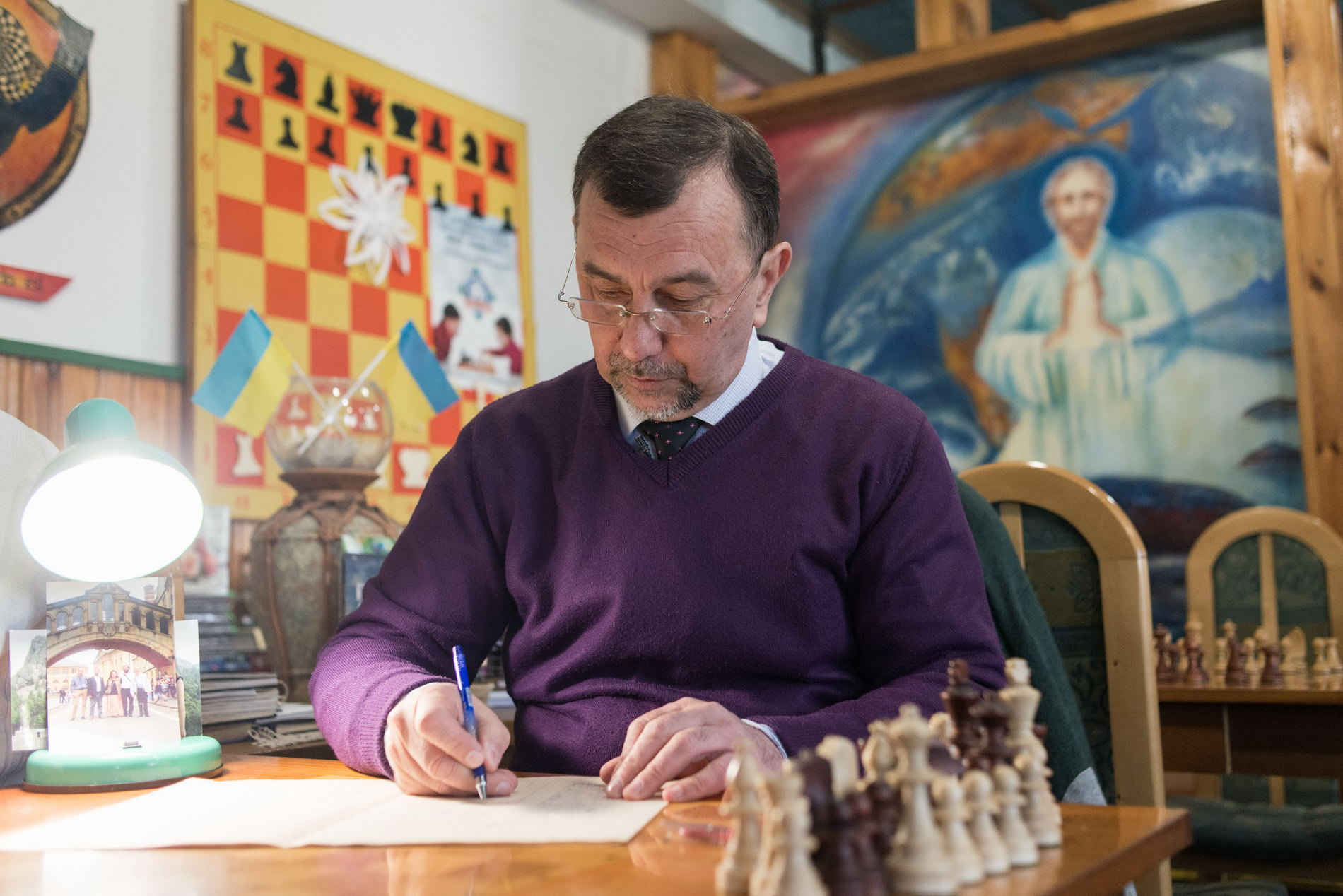
Chess Center
After Oleksandr had graduated a teacher-training college and started working in a school in Kostopil, he immediately founded a chess club for children in his school:
— It’s not just about chess. It is that uniting factor, that spiritual and intellectual field, which allows to communicate with a child easily and directly. When you explain the laws of chess, you introduce the child to the world of dialectics, physics.
In 1986, Oleksandr received a building for his center. Its condition was far from perfect:
— There was a cement floor there, rats were running around. Throughout these years, we improved every corner of that building. We tried to do everything with love.
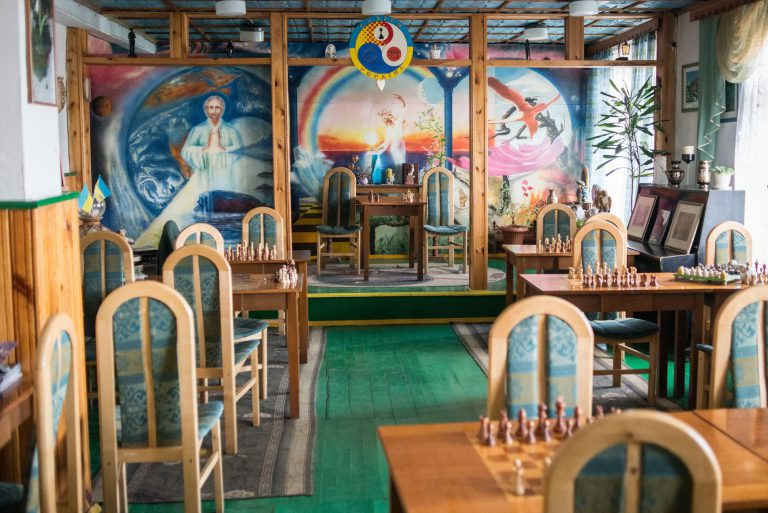
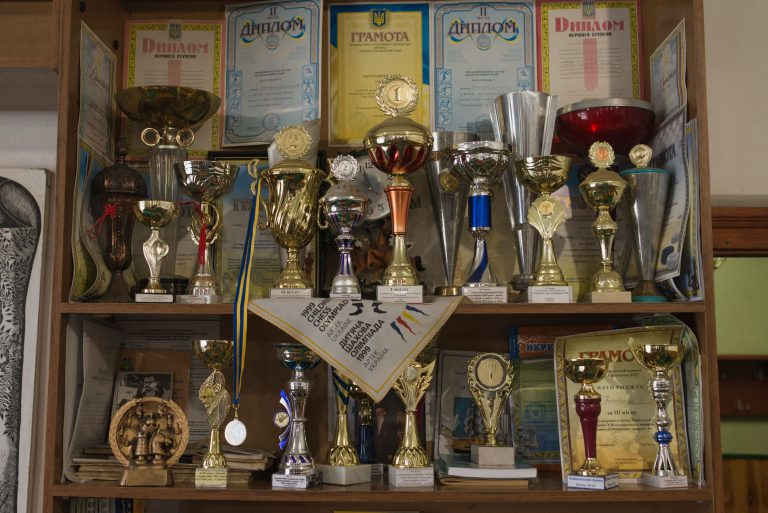
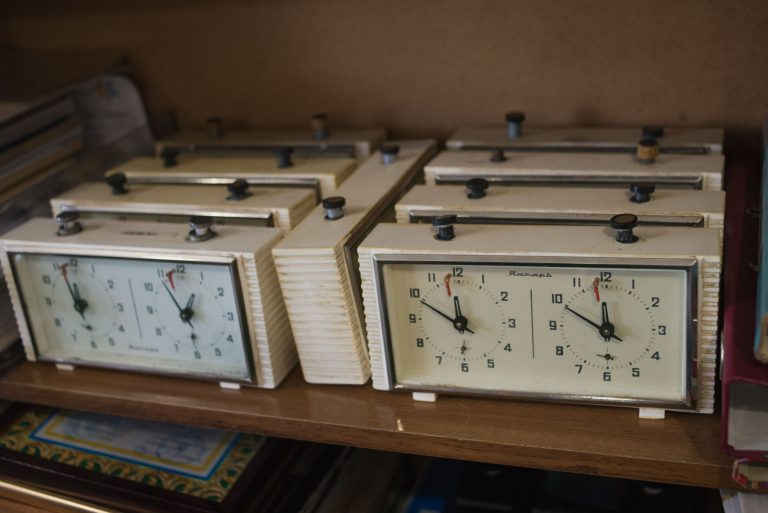
slideshow
In the harsh 1990s, Oleksandr managed not only to preserve the existing physical infrastructure but also to expand it. In addition to sixteen new chess tables manufactured by the local furniture factory, the chess club got twelve chess sets produced by the English company Staunton, which were purchased during the European chess championship in Warsaw. These chess sets are used by professional players at the international level. Besides, due to the support of the local education department, the club obtained comfortable high back chairs:
— In a center like mine, chairs need to be high-backed. They should be of mild green colour. So, we made 40 chairs during that time. I am very glad because the kids feel comfortable.
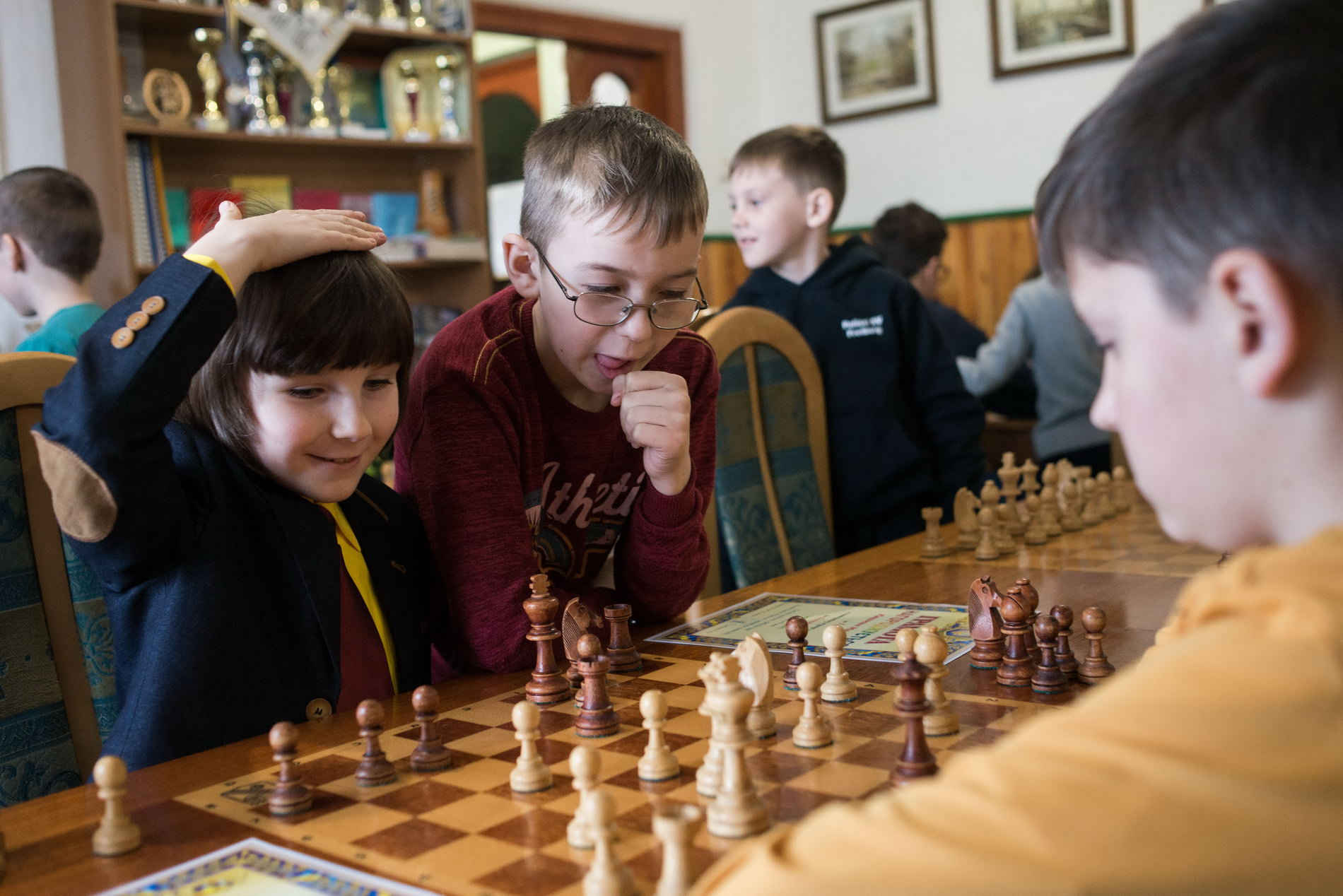
As Oleksandr was developing his club year by year, he could see a tradition develop around it as well. Today, children come here even on their days off. Oleksandr believes it is the result of a gradual but continuous self-development.
— Everyone has to pull their weight. I think that the world is created by marathon runners, not sprinters. Marathoners keep pulling their weight. They often don’t have enough time to check how big their weight has got, but they persevere. Sprinters just shine for some time and then burn out, and no one remembers them. The real quality, though, is produced by those who are capable of executing their mission over a long period of time. It’s because a tradition takes a while to form, and the tradition can be a foundation for everything else. If we don’t have a tradition, we have nothing.
Suzirja started off with just 8 students. Today, it educates over 200 students. Oleksandr Kozak himself teaches more than 30 students. His oldest student has already turned 50, while the youngest ones are just around 5 years old.
Usually, chess taught at this club is meant to help students’ general development. However, there are also professional chess players who started off at Suzirja. For example, one of Oleksandr’s students currently plays for the Israeli National Chess Team.
Former students of Oleksandr Kozak live all around the world. Not only do they not forget about their teacher, but they bring souvenirs to the club too.
— I have a lot of students all over the world. They bring, send, present things, which, in fact, fill this place.
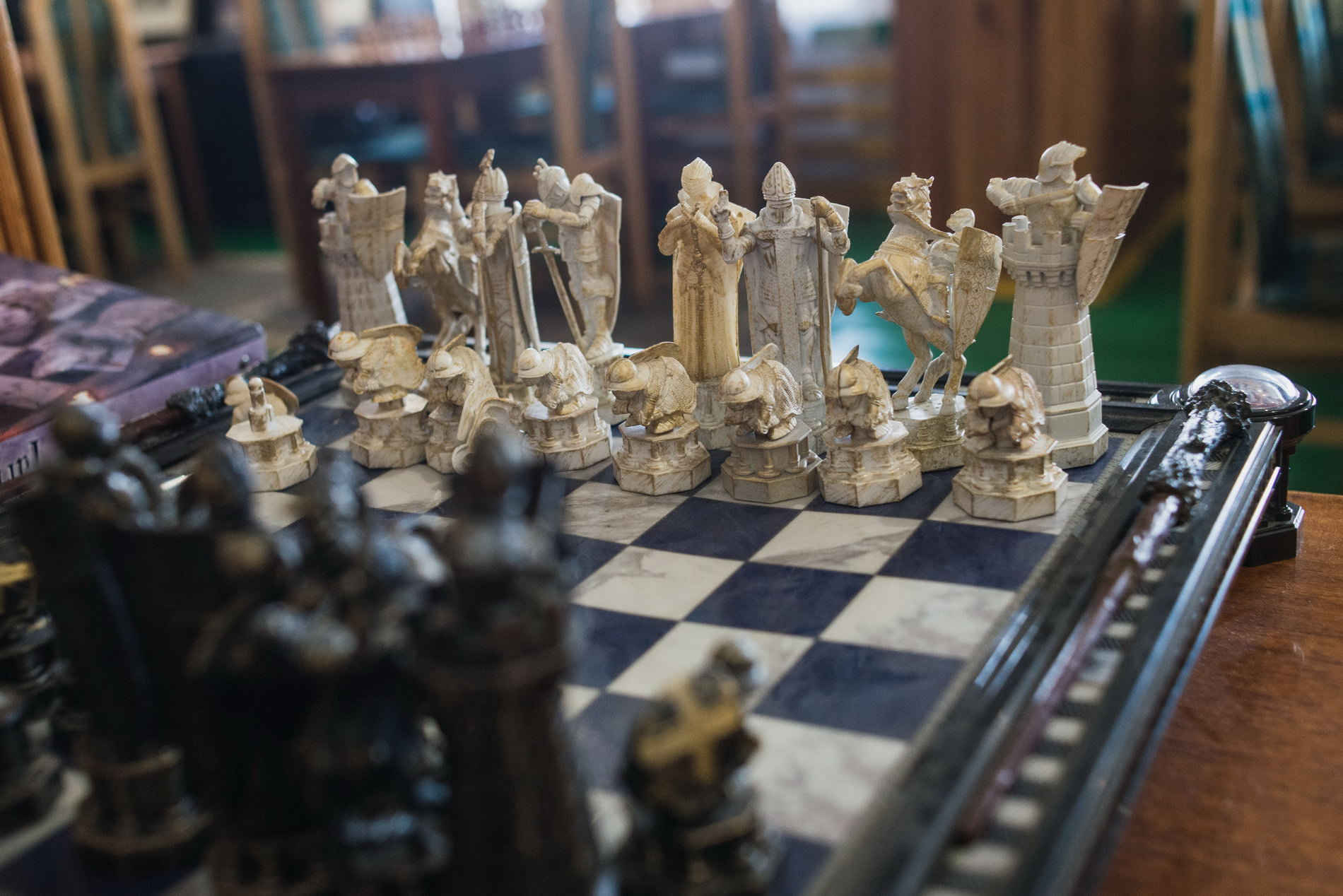
You can find everything here: from Irish chess sets to a piece of Mount Kilimanjaro. Those are gifts from former students and colleagues.
The Suzirja Center is not limited only to teaching chess:
— I hold nights of classical music here in December. For over 12 years, there has existed a band Trio of contrasts: two violin players and one pianist, they come here regularly. There are meetings with my former students, among them Yurii Polikovych and Viktor Yudin.
As Oleksandr puts it, there already are several people who would like to succeed in leading the center. The most important task for Oleksandr is to preserve the center’s atmosphere, which was created by years of his work.
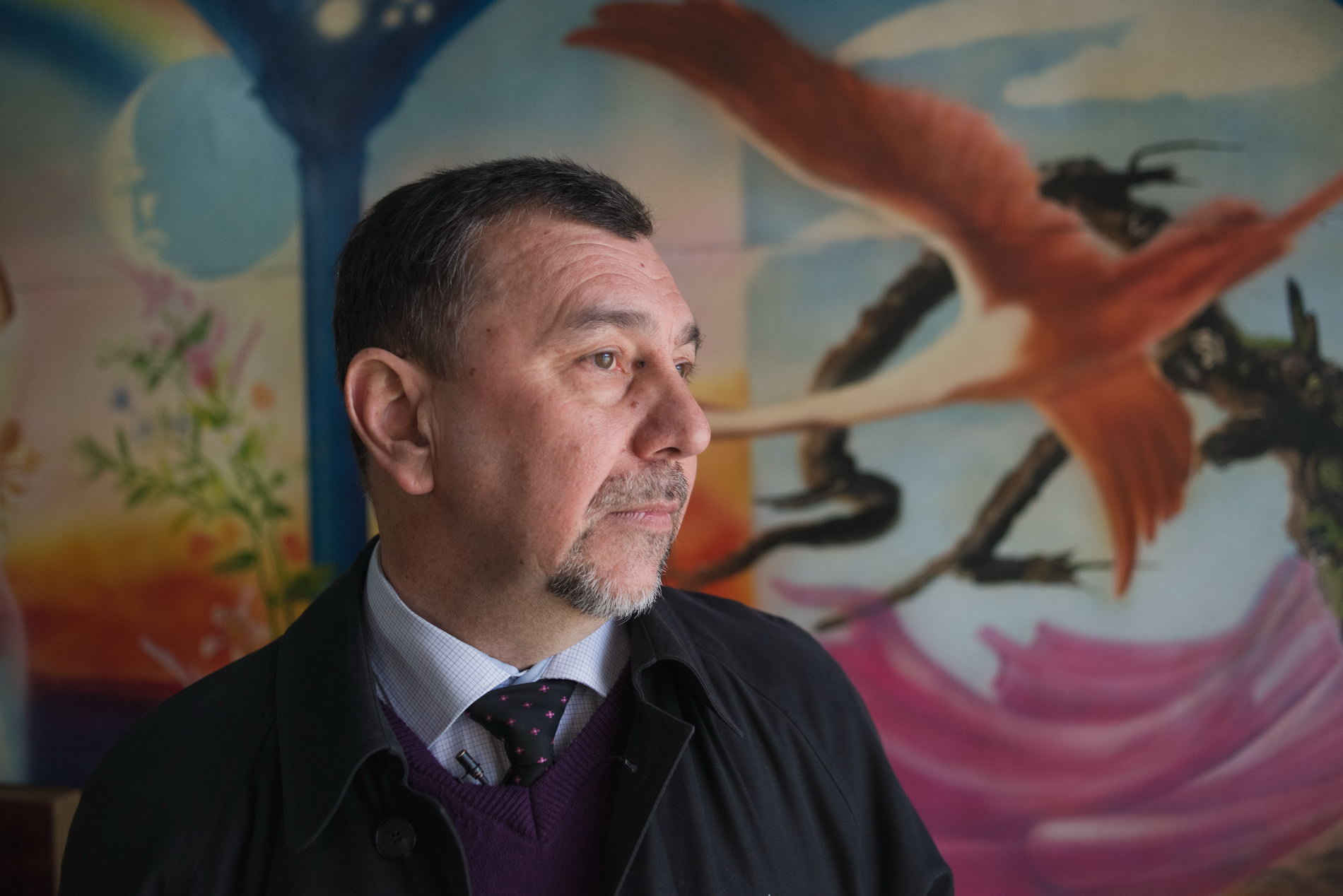
The center is full of different symbols and it is important that the kids are introduced to those symbols and understand them since that will help them to have a more comprehensive understanding of the world, Oleksandr believes.
— When I was creating this establishment, I tried to fill it with symbols which would be easily understood by the children. You see, there is this traditional path from a sign to an image. It’s the path to spirituality. It carries a spiritual symbolic meaning. When children find themselves in such an atmosphere, they get filled with it, consciously or unconsciously. So, when they grow up and are able to realize what is around them, they become educated spiritually.
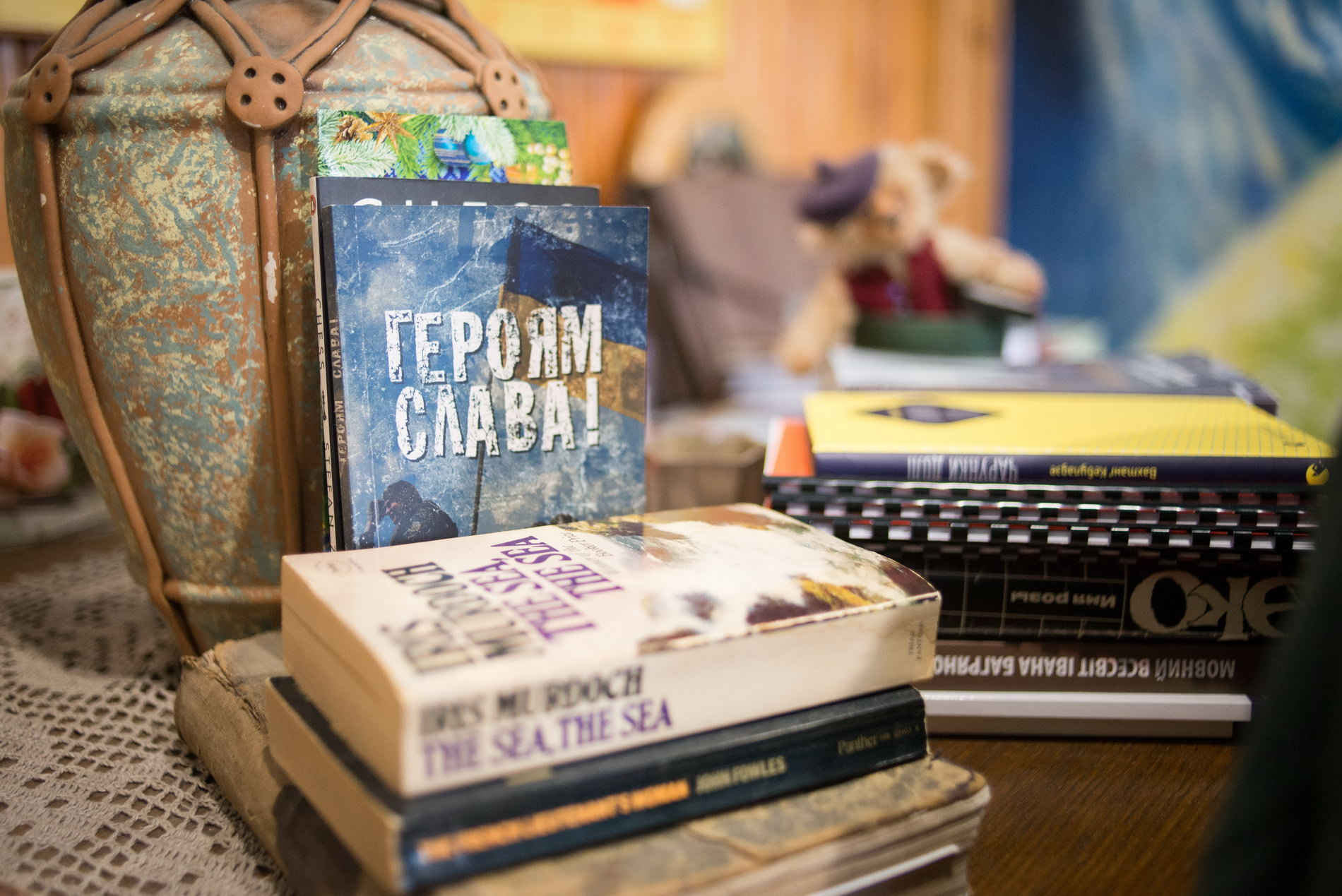
The club’s symbol is “Homo Ludens”, i.e. “A man that plays”:
— A person who plays is free. When children get to the sphere of a game, a primary element, they become free from all external distractions and dissolve in the process of the game, exposing their real nature.
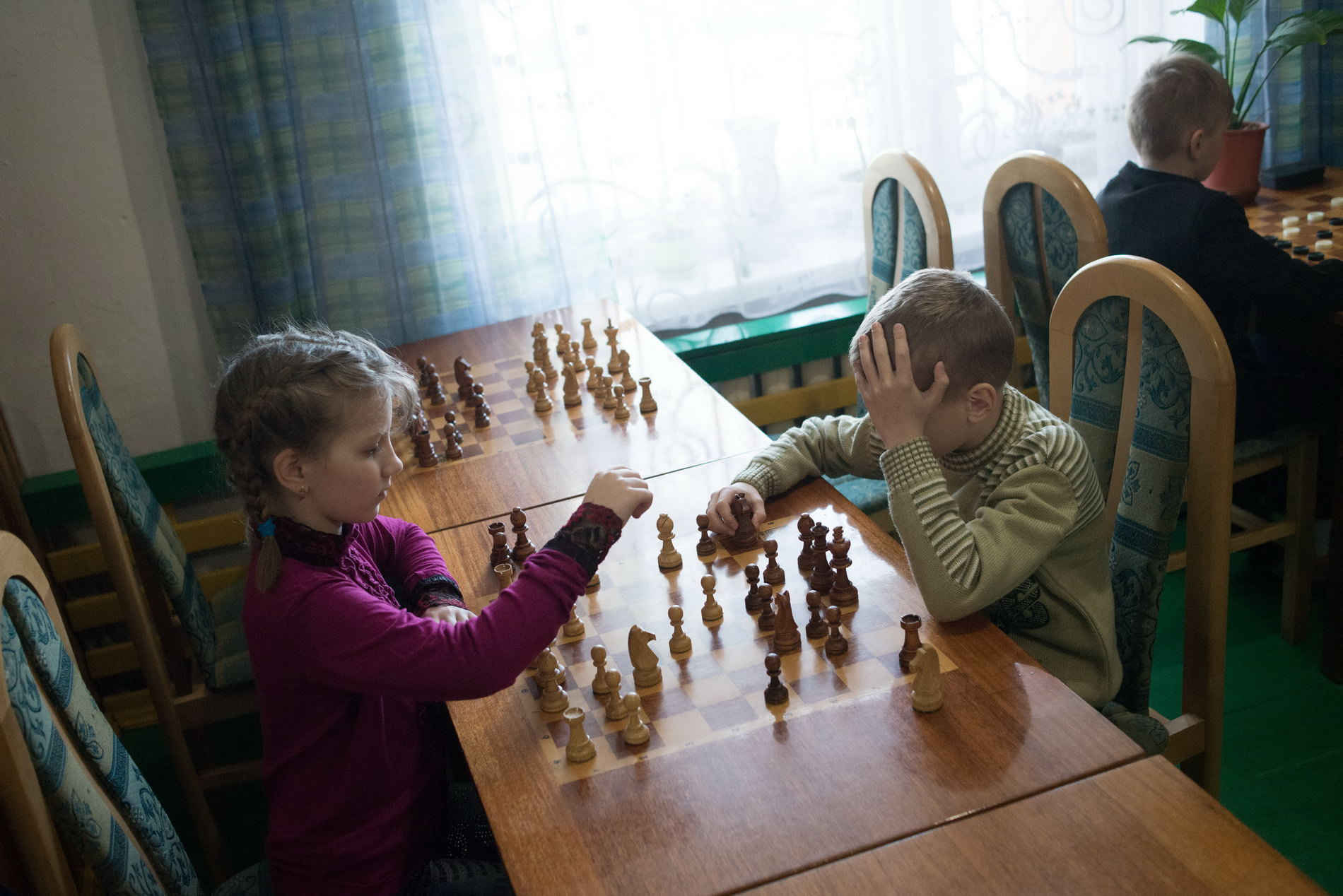
Students
Oleksandr Kozak’s first students became his favorites, the ones that each educator is usually looking for throughout his/her whole life. These children gave Oleksandr a true inspiration to move forward:
— I was 21 when I graduated the teacher-training college and started working in a school. It was in that school where I found a brilliant galaxy of children who were genetically inclined to understand me. This first group of children gave me an impulse. I realized that I needed to switch to this job, which gives both me and a child the best opportunity for self-fulfillment.
Oleksandr does not impose his ideas on his students, he just helps them truly find themselves and choose their own path:
— From the very beginning, God granted me such a galaxy of children one can only wish for. It was a great responsibility but also a great happiness.
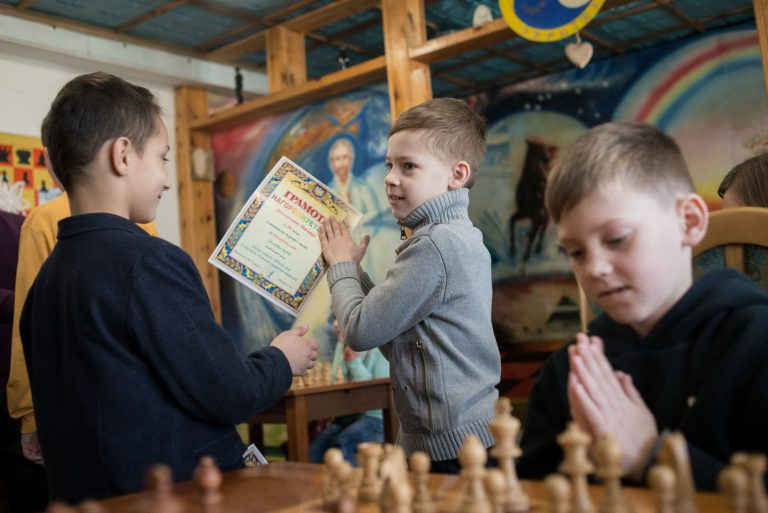
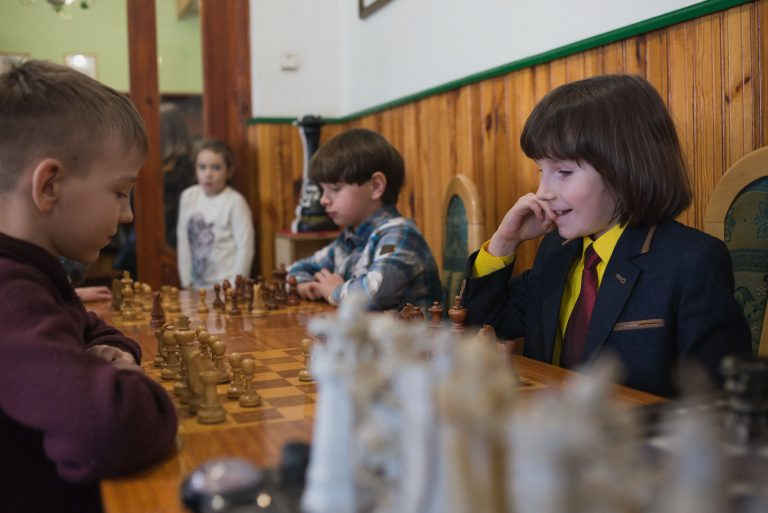
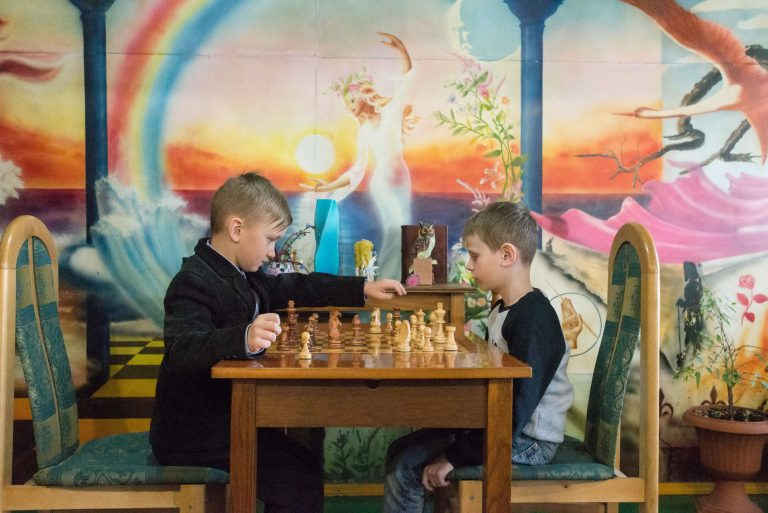
slideshow
Here’s how young students of the center describe their interest in chess:
— For me, chess is the activity I like doing. I would like to become a champion in this game. Chess helps me develop my thinking and logic. I often make mistakes, but the teacher helps me understand them. And I understand them, so I won’t do the same mistake the next time with the knowledge I have. (Bohdan Krasovskyi, Student)
— When you are at the chess table, you forget about all fuss. You are just playing. Chess gave me the skill to plan all my actions ahead. (Vladyslav Chereshnia, Student)
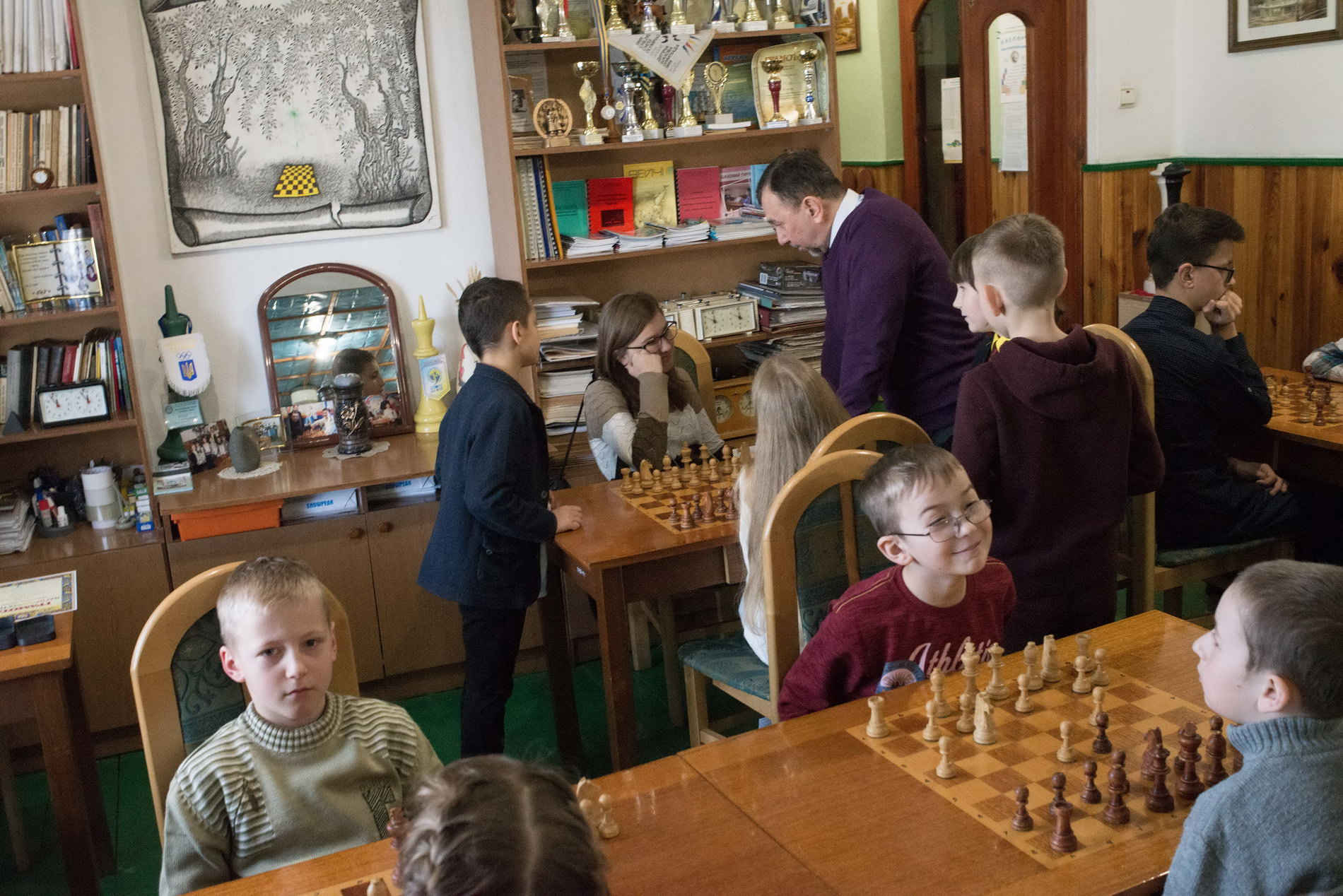
Approach to a child
After the Soviet Union collapsed, Oleksandr’s establishment faced new difficulties but also saw new opportunities.
— With the time, when financing became a bit problematic, I slightly changed the vector of development. I concentrated on making sure that a child feels comfortable here, that a child feels an atmosphere of coziness and freedom.
Oleksandr shares a unique approach to children which he had developed as an educator:
— What is the main secret? It’s to love the child. Erase the memory about yourself and don’t brag about yourself, don’t constantly think about how awesome you are. You just dissolve in this job. And, again, you must love the child more than you love the accompanying papers.
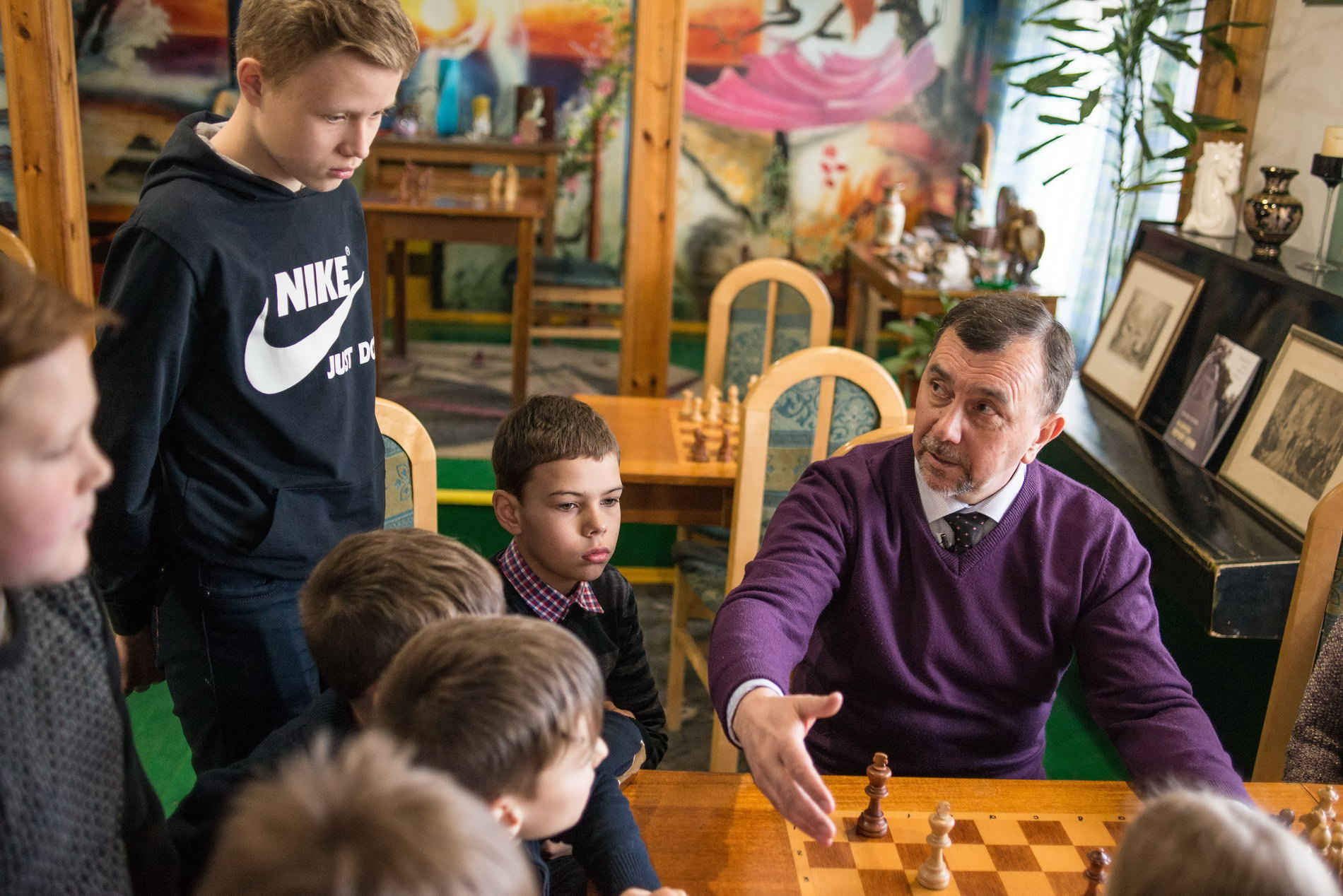
Oleksandr believes that the love of children should go hand in hand with the love of a good book:
— Teachers should read. If a teacher doesn’t read, he won’t be interesting, he won’t become a true professional. Children will just leave.
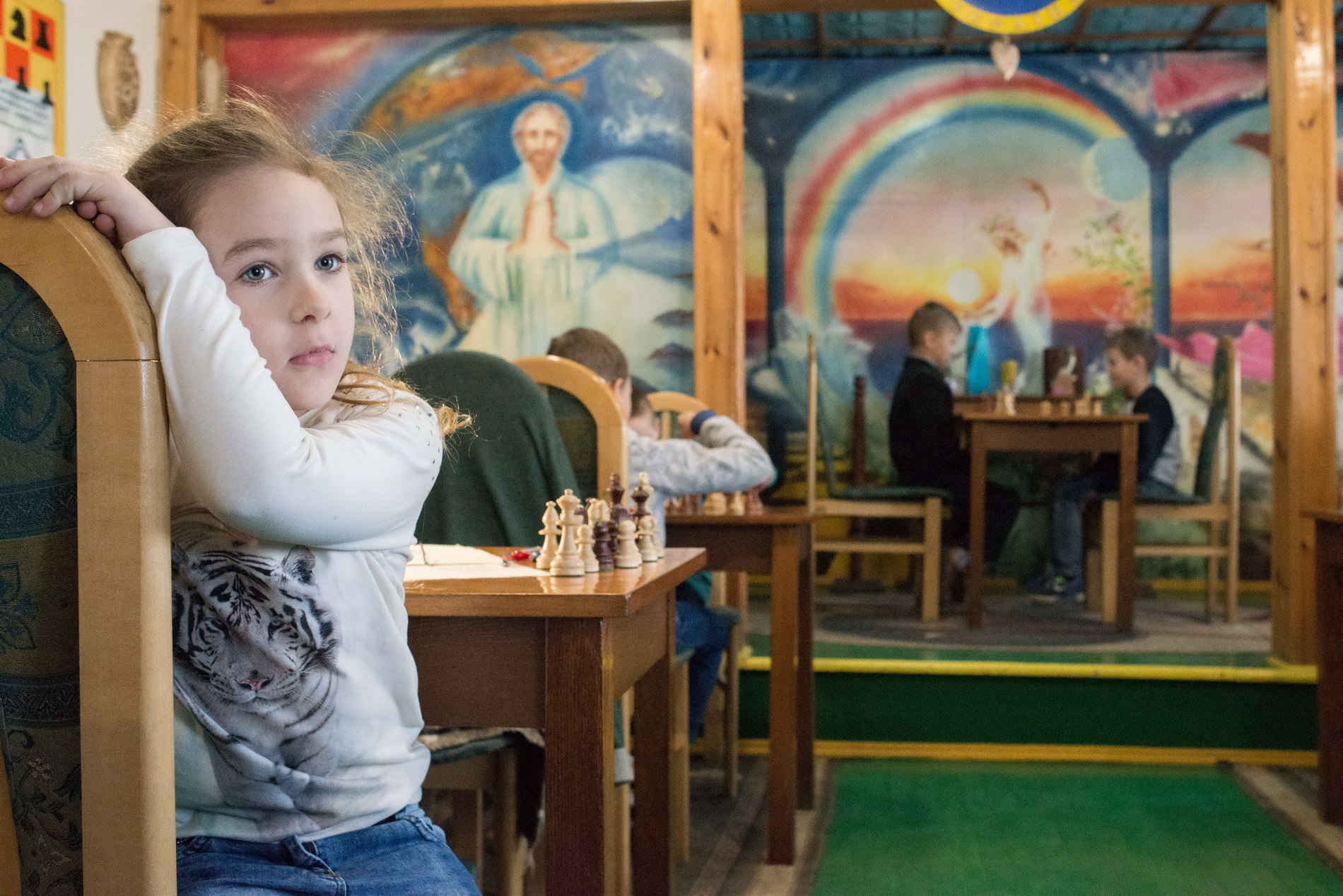
Oleksandr is an optimistic person, and he says that children are the source of this optimism:
— Sometimes optimism fails you when you face a theatre of the absurd. I think I was born an optimist. I feel it. I have faced a lot of difficulties throughout my life, but, rather strangely, I haven’t lost my optimism.
— Children inspire me, and the sphere of childhood has always been interesting for me. Wise men say that “a child is a true human being”. Children aren’t mean. They are like a clay you can use to create something, and creating something is always inspiring. When I am tired or sad, I revive quickly. It inspires me.
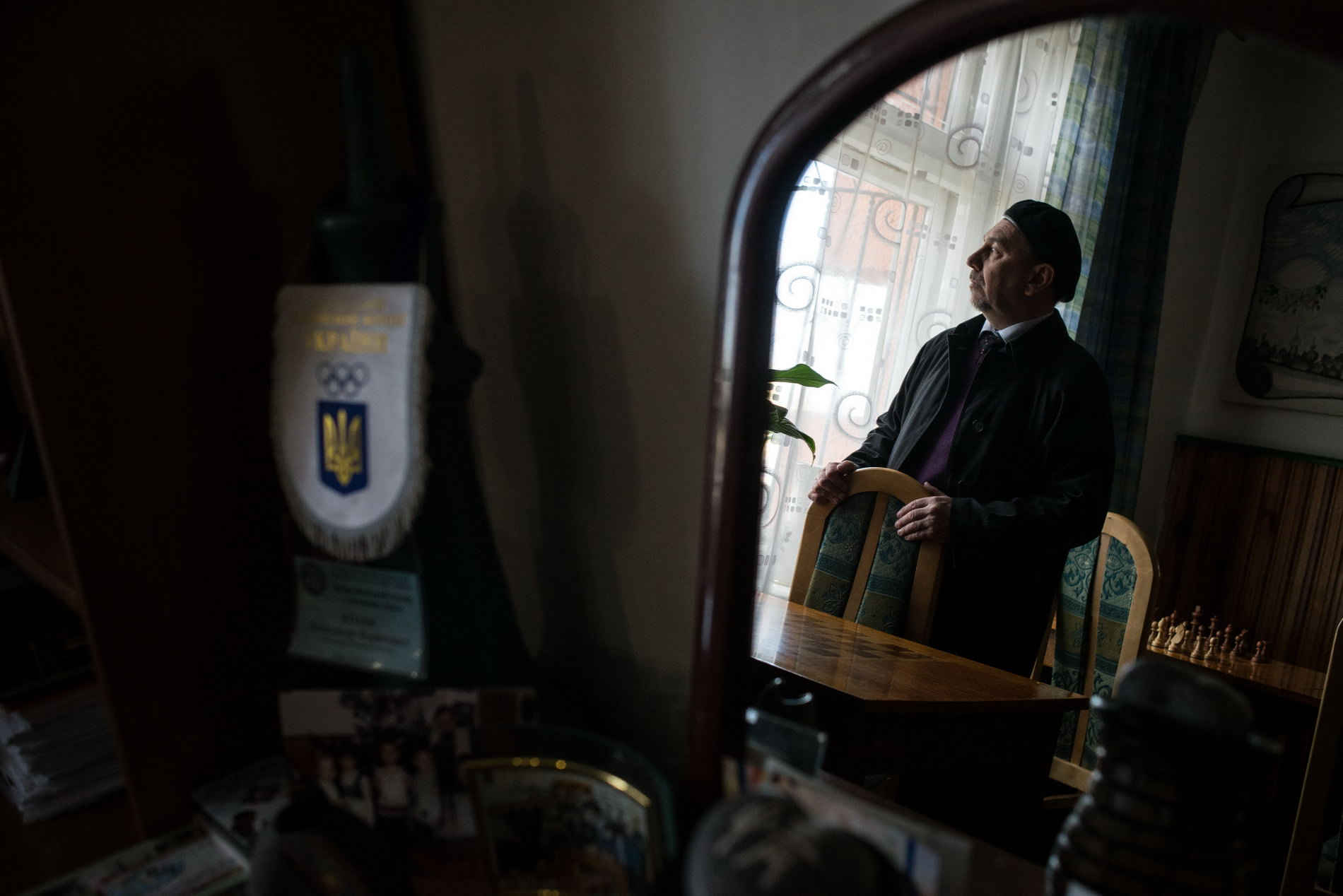
Teacher’s role
Kindergarten, school, and university lead a child to adulthood. However, further future and career are not so obvious for young Ukrainians:
— Our labor market is very underdeveloped. We’ve lost a lot of young and talented people. They go to the West. They should have been creating their own Ukraine. The state spends so much funds to educate the child, and then they leave. Someone starts selling goods on the local market, someone radically changes their field of education, chooses a new occupation.
Oleksandr believes that the role of a modern teacher and educator in children’s education is especially important today:
What is the task of a teacher? Raise a personality and become a personality. Only a free person can be a teacher. The very system of relationships had always been the way when teachers were not free in a lot of aspects. If we want to change the society, we need to start from changing the rules in education.
When discussing the role of education and the role of the word in the contemporary world, Oleksandr puts it this way:
— Soviet repressions destroyed our intelligentsia, but a nation is not complete without an intelligentsia. Some say that intelligentsia pays too much attention to words. It’s not true. The word is the aura which fills the spirit of the nation, its atmosphere. It influences you from various perspectives and creates the tradition which is later replicated by the child who grows up with this tradition. It’s what the child breathes. If children breathe freedom, they grow up free. If they breathe slavery, they become slaves.
Despite all the problems, Oleksandr sees some very positive changes in the minds of parents, which also inspires him:
— You see, I have a room full of children, and I don’t face a problem of an empty class. It’s because young parents bring their children. They start understanding that they should develop their child. When there is such opportunity, they must do it, because it is the childhood which forms a foundation for our success in life.

